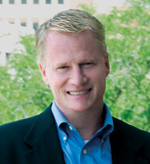Column: Dave Brandon’s Fireworks
The University of Michigan’s athletic director sent a proposal to the university’s board of regents, requesting permission to set off fireworks during two football games this fall.
At first blush, the question of post-game fireworks didn’t seem like a very big deal either way. On Michigan fan blogs, reactions were mixed. As for the university’s regents, they have bigger things to worry about than fireworks. Even the athletic department’s budget – which has grown by 50%, currently pushing $150 million – might seem like a lot to us, but that’s a rounding error at the university’s hospital.
So when the regents voted down the proposal for fireworks for two games this season, it got people’s attention.
The regents rarely split their votes, or deny the athletic director’s wishes. But when the regents looked into the fireworks proposal, they were surprised to find the department wanted to set off fireworks not just after both games, but during the second game, after touchdowns – replacing the century-old tradition of celebrating success with the marching band blasting “The Victors.”
Once bloggers saw that, they exploded like – well, fireworks. They didn’t like the idea any more than the regents did. [Full Story]




